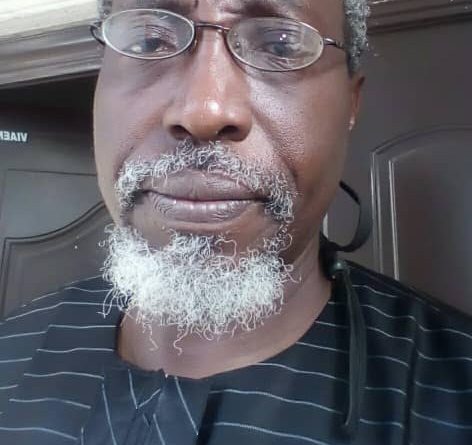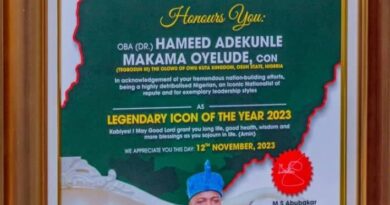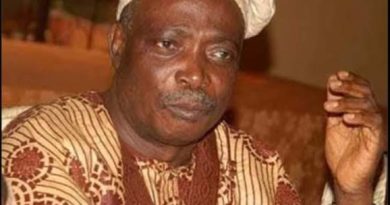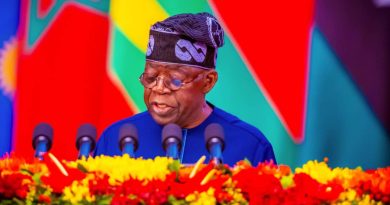Afe Babalola, Dele Farotimi, And Yoruba Obas’ Intervention-By Lanre Ogundipe
The defamation debacle between revered legal luminary, Chief Afe Babalola, (SAN), and self-styled “retired” lawyer, Dele Farotimi triggered national and (to some extent) global reactions towards the end of last year. There are reports on regular and social media that following the visit of some Yoruba traditional rulers, the matter may have being resolved. According to a statement, the Ooni of Ife, HRM Oba Adeyeye Ogunwusi led a delegation of Obas from other parts of Yoruba land Sunday night to the Ado Ekiti residence of Babalola seeking his understanding, and pleading for final resolution of the vexatious matter.
It was confirmed that, after the late-night meeting, Babalola; who was joined by the Vice Chancellor, and Bursar of his world-rated University, as well as one of the lawyers handling the case accepted the royal request. Babalola, who revealed that he had declined similar request by some notable Nigerians including Chief Olusegun Obasanjo, and Bishop Hassan Kukkah, promised to instruct his legal team to withdraw the libel suit against Farotimi.
It is instructive to reiterate that worried by the likely consequential effects of the criminal suit filed by Babalola against Farotimi, the writer in an earlier article; “Of Dele Farotimi, Afe Babalola, Defamation Suit, and Way Forward” published in various news platforms on December 14, 2024, solicited for peaceful, and amicable resolution of the matter. The writer noted that, Babalola, given his status, position, and contributions to national development should forgive Farotimi. It was also posited that the revered legal connoisseur should see it as a sacrificial gift to his numerous mentees at home and abroad. The writer also counselled Farotimi to eschew undue rigid posturing, and avoid dancing to the “sweet melodies” of some dispute merchants who are merely interested in expanding the gulf between him and Babalola. He was advised to embrace opportunities for genuine reconciliation and truthful regeneration.
Indeed, the pervasive dimension of corruption in Nigeria is befuddling and pathetic. Fact is, corruption is not limited to th judiciary. Sadly, it is increasingly endemic such that institutions and individuals in public service have herculean task insulating themselves from the debris. The collateral damage is huge such that corruption not only undermines public trust but portends present, and future danger to national growth and development. A school of thought argues that allegations of corruption in the judiciary has damaged effective administration of justice in the country.
No doubt, the intervention of Yoruba royal fathers is timely, and necessary. That HRM Oba Ogunwusi and his brother-traditional rulers waded into the matter, and Babalola acceded to the request speaks volumes about the strategic position of traditional institutions in Yoruba land. It actually brings to fore the recognition and respect the people have for royal fathers. Also, it has elevated the importance of alternative resolution mechanism in civil and criminal matters. Further, it has saved the two parties the psychological torture, financial burdens, and legal exertion that would have been devoted, and dissipated on the suit.
Truly, lessons must have being learnt by both parties. The writer believes that Babalola, being a very wise, knowledgeable, and intelligent elder may have picked some nuggets that would be useful in his lofty contributions to legal jurisprudence. One is hopeful that Farotimi may have realized the importance of introspection and solitude in handing matters. He may have realized the intricate and delicate (im)balance between freedom of expression, and the protection of reputations within the legal space. For those who contributed largely to the polarisation of the dispute; while it lasted the shame is on you. Fact is, many Nigerians always seek for issues which they can profit from, and leverage on for their selfish benefits. Exactly what happened in this instance. While some were showing “loyalty and respect” to Babalola by pushing his position, other people embarked on unsolicited advocacy for Farotimi to be seen by gullible Nigerians as “defenders” of the legal profession.
Though the resolution of the matter is applauded and appreciated by many Nigerians, the issues raised in the book should be addressed by critical stakeholders and relevant institutions. More than ever before, there has to be legal reforms. This is a clarion call on the Chief Justice of Nigeria, Justice Kudirat Kekere-Ekun to collaborate with her colleagues in the Supreme Court, and other Courts as well as major players in Nigeria’s judiciary to embark on in-depth reviews of existing laws.
LANRE OGUNDIPE Public Affairs Analyst, Former President Nigeria and African Union of Journalists February 4,2026




